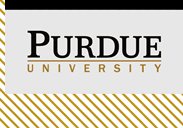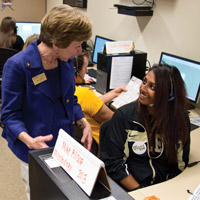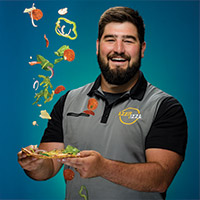
Senior Alex Jones is an undergraduate researcher in the lab of Wei Zheng, professor and head of the School of Health Sciences. Jones is investigating how manganese is stored and released in bone tissue. (Photo by Steven Yang)
Diving into research
Undergraduate research is one of the ways students can gain hands-on experience while also working closely with faculty and graduate students. All academic units in the college offer this opportunity, some as early as a student's second semester. Psychological Sciences and Nutrition Science both offer research-focused honors programs for top students.
Alex Jones is a senior in the health sciences pre-professional program, but he had no research experience when, as a freshman, he started working in the lab of Wei Zheng, professor and head of the School of Health Sciences. The lab's research investigates how manganese affects the body and how it can produce many of the same symptoms and neurological problems as Parkinson's disease.
Jones' aspect of the project involves looking at how manganese is stored and released in bone tissue. He's done work to determine the rate at which the element accumulates in the bone and the rate at which it's released back into the body & important because it provides insight into how long manganese can remain in the body before having a toxic effect on the brain.
"Alex is a great example of a student knowing nothing about research, but who, through hands-on learning, will become an expert in a particular field," Zheng says. "In fact, his work has earned him a co-authorship on one of our recently accepted papers."
Jones plans to attend medical school and says the medical field is the best possible way to combine his fascination with science, enthusiasm for people, and his problem-solving nature. He believes his exposure to research is critical to his future success. Already, he is benefiting from the ability to research scholarly articles, understand the material presented, and then use that information in his own projects.
"It has vastly expanded my understanding of how the scientific community operates and advances our knowledge of the world around us," he says. "The greatest surprises are the realizations that nothing ever proceeds as it was originally envisioned, and the amount of time and effort put into research is not always proportional to the quality of results. I've come to realize that these frustrations are nearly unavoidable and simply part of the scientific research process."











